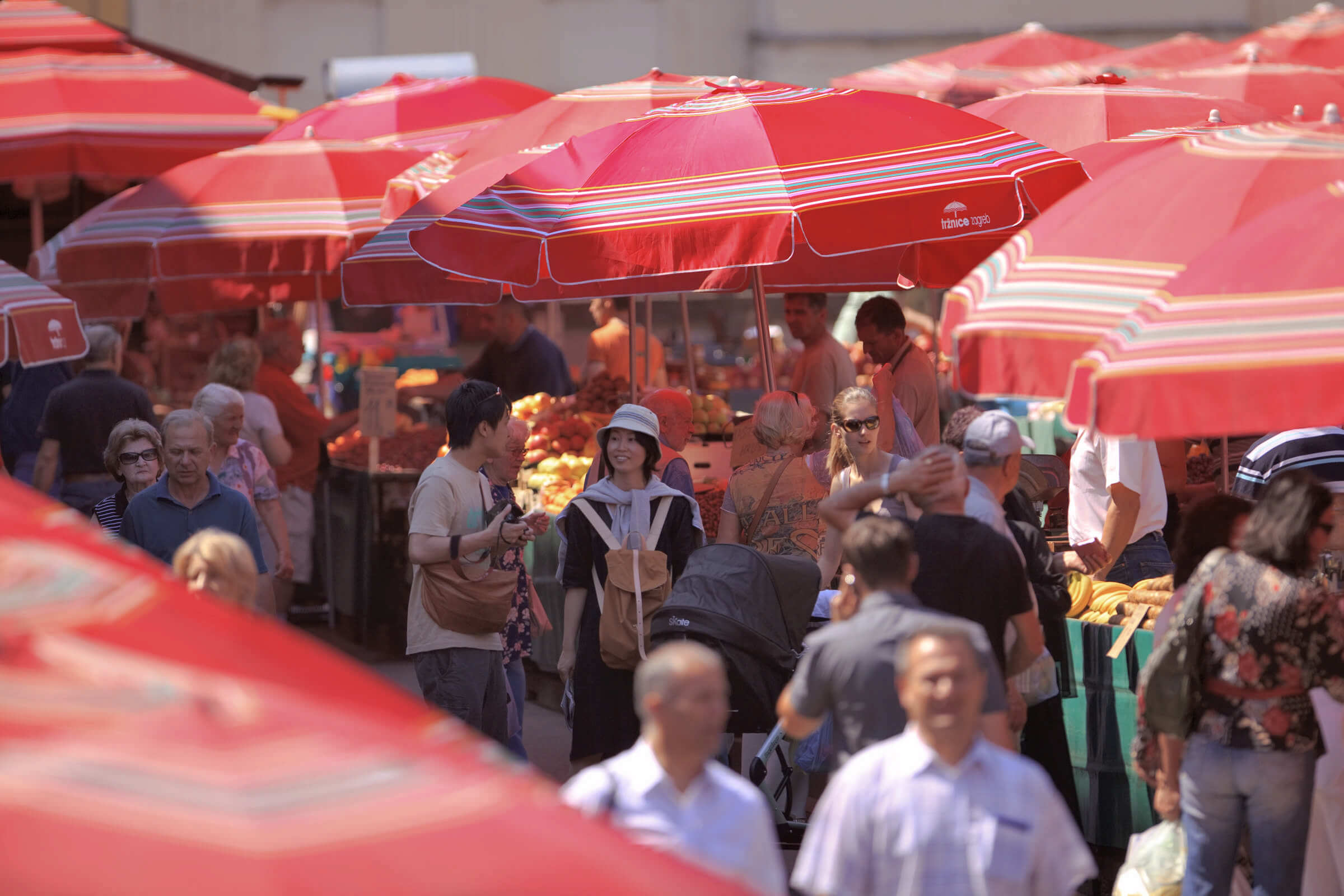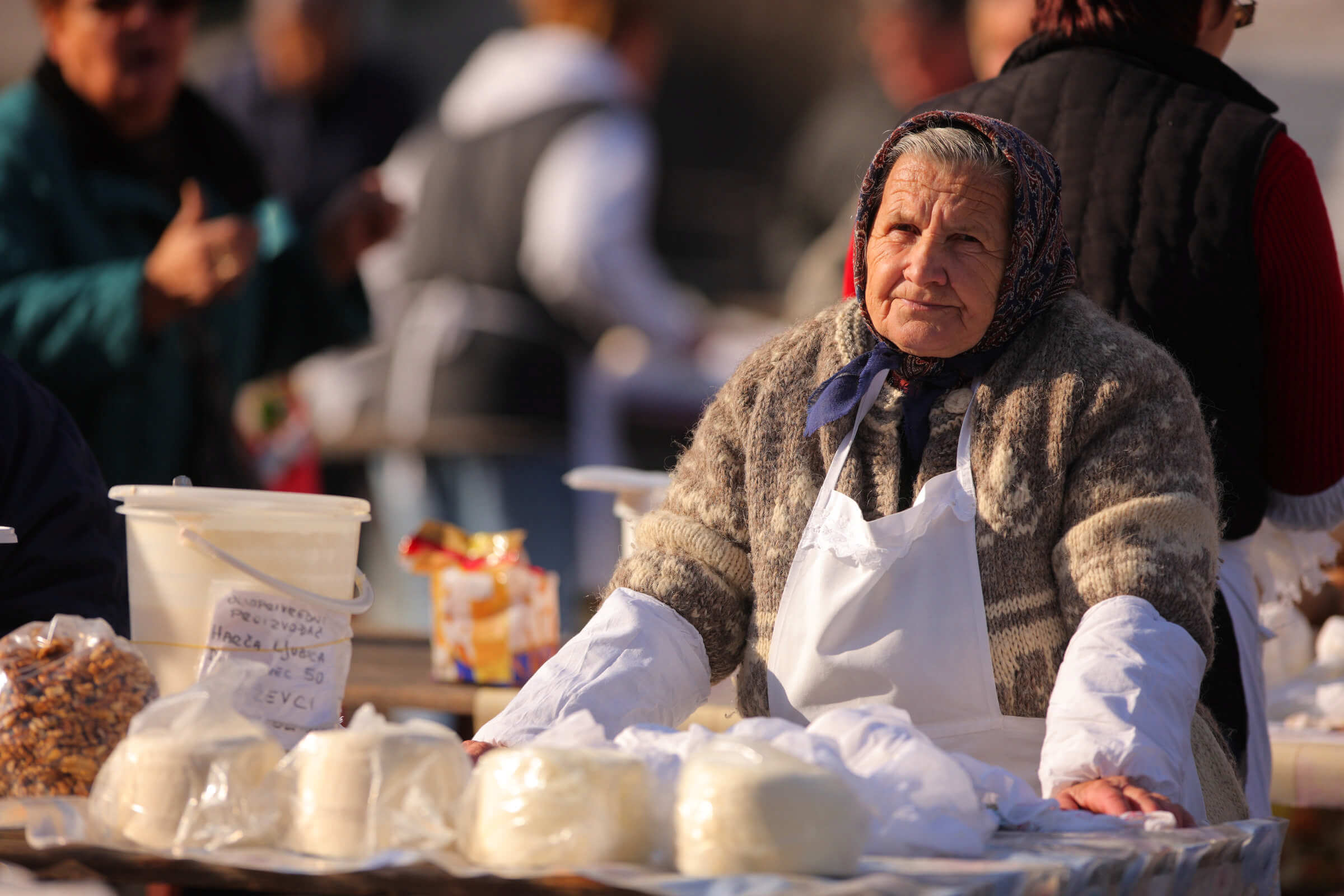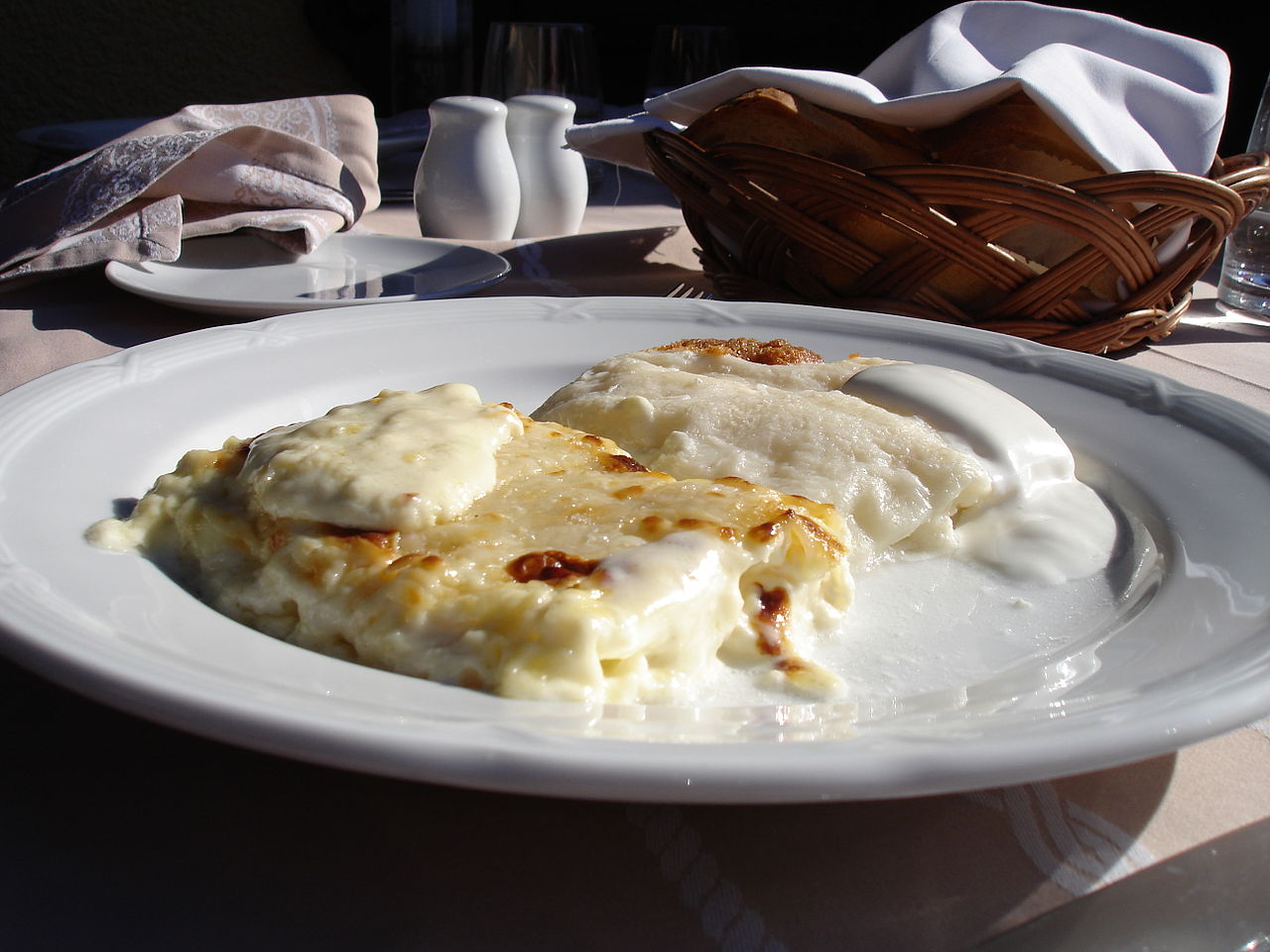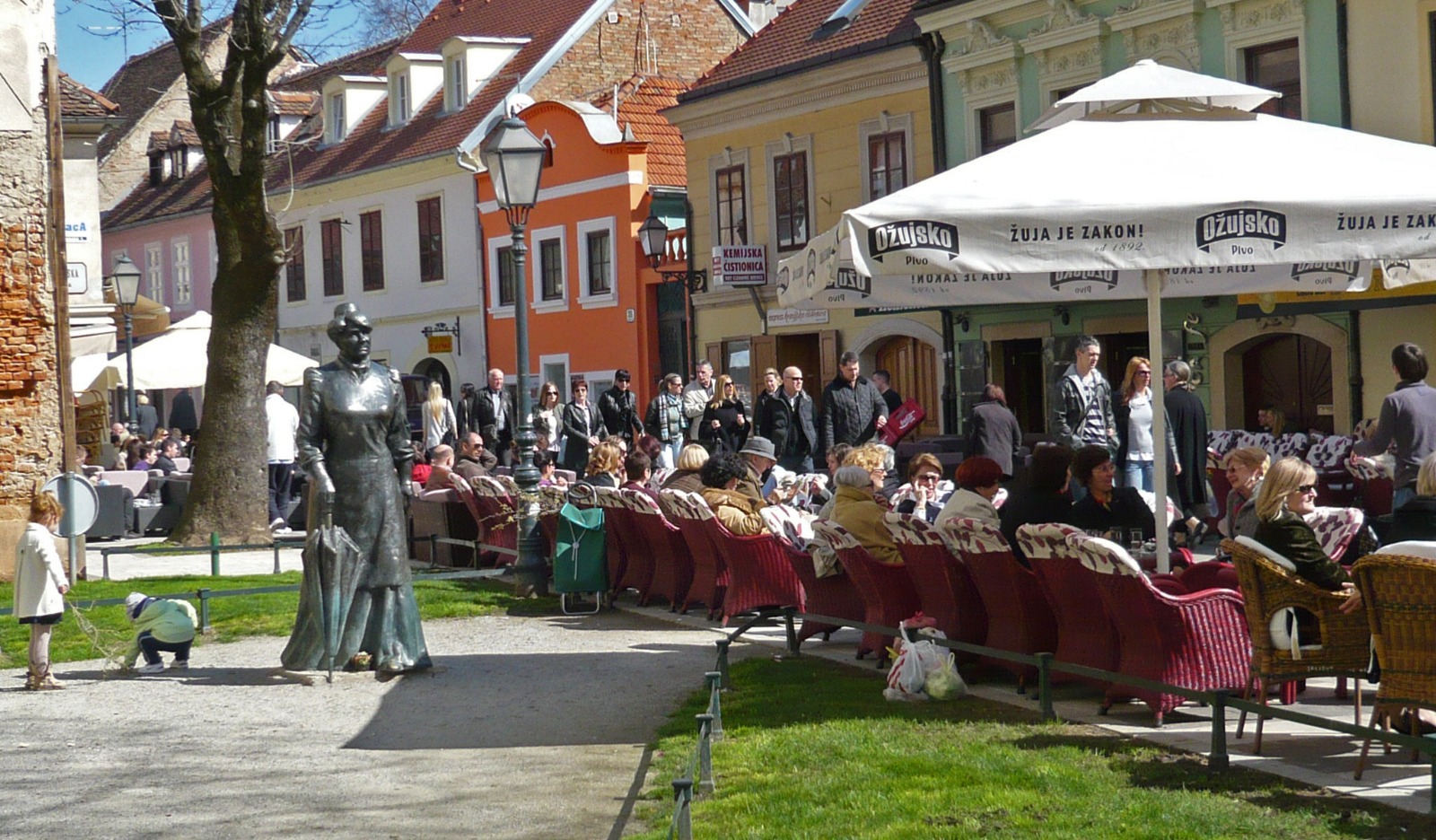Zagreb Through the Eyes of a Sixteen Year Old Expat: Part 2
July 21, 2022 - As Zagreb continues to become a beloved destination to visitors and a home full of life to those fortunate, the continuation of the new TCN series – exploring the thriving capital of Zagreb through the eyes of a sixteen-year-old expat – presents culinary traditions that I have experienced during my time here.
Starting from Zagreb’s popular living landmark: the Dolac Market. A crowded hub of interactions, which overlooks the main square, comprises itself of a raised open site lined with endless stalls of fresh produce. Additionally, the market's variety consists of seafood, which is set up alongside the produce in a ‘Ribarnica’, as well as red meat and dairy products, which can be found at street level in the indoor area. The impressive diversity of the domestic trading system has brought the capital of Croatia an attraction worth visiting and likely to be spotted thanks to the big, red umbrellas!

Photo: Romulic & Stojcic
Zagreb’s local economy attracts people from all over the world with its renowned traders, known as 'kumice' – who fill the atmospheric scene with delicacies and comforting commotion of distinct voices – as well as flower stands offering seasonal greenery before the entrance to the active market.
The Dolac Market, having been built between Kaptol and Tkalčićeva, has become Zagreb’s busy thoroughfare, which continues to showcase trading traditions that have been started all the way back in the 1930s.

Photo: Romulic & Stojcic
Continuing on with the famous Štrukli, the traditional specialty of the Croatian Zagorje region. The prized dish has earned its love amongst tourists and locals because it is handmade and quality, and earned its place within the local tradition. Being known as a pastry that is served as an appetiser, filling addition to soups, a tasty main meal, a fast snack or a sweet dessert, Štrukli has gained attention unlike anything else!
Moreover, in honour of the traditional dish, there has been the occurrence of Štruklijada, a special event organised in the village of Kumrovec since 2009. The event's purpose is to help promote and preserve the traditional method of preparing the štrukli pastry, which year after year is attracting ever more local and foreign guests.

Photo: Bonč/Wikimedia Commons
To reveal, when first invited to try štrukli, I was impressed by the gentle taste of the soft dough, creamy cheese, eggs, and its sour-cream sauce. The dish made a great first impression on me and made me re-visit “La Štruk” – a small restaurant serving only štrukli.
Lastly, let’s talk about the sidewalk cafes, restaurants, and bars on Ivana Tkalčića Street. Unlike the street we now know and love, Ivana Tkalčića used to be a natural border – known as the Medveščak stream – between the two settlements that Zagreb emerged from, where numerous conflicts used to arise. It used to involve brutality and hatred, while now it promotes an atmosphere of blissful days filled with laughter and relaxation. And being known as the most vibrant street in Zagreb, the local street food does have a lot to offer!

Photo: Luis Bartolomé Marcos/Wikimedia Commons
A mixture of cuisine and flavours can be found on this promenade; from oriental food to classical hamburgers, you will find everything here. But what makes this street and the dishes it has to offer extra special are the people. I find the indisputable charm of the street coming from the dynamics of the locals and the laid-back attitude of those surrounding you.
Do not miss out on the opportunity to discover the city’s distinct personality and the food it has to offer by finding out more about the culture it is exceptionally known for!
For more, check out our lifestyle section.
Language, School and Friends - What Life is Like for Teen Expats in Zagreb
It's true Croatia may not pose the most favourable conditions for young adults looking to get out into the world and establish themselves.
As funny or unusual as my story may seem, it's met with confusion and shock for good reason. On the other hand, families and younger teens and children who move over here are generally supported and understood. It’s not so out of the blue or strange to want to bring and raise your family in Croatia, with playgrounds and green spaces a mass, low crime and a good school system. In an effort to combat the mass exodus of Croatian citizens, the Croatian government even grants allowances per newborn to encourage families which, in the town of Sali for example, can reach up to 10.000kn per newborn (feel free to read more here).
The short version is simply the fact that Croatia places a high priority on family life, but has this translated into the lives of the expats kids who move here with their family?
Before me, my younger brother (we’ll call him Filip) was the first to move here. Plucked out of school in England at the start of Year 8, Filip had just begun high-school in the UK. After a difficult time and a lot of change since then, he now finds himself studying and socialising at a local Croatian school in a small town not far from my parents village. Here is what he has to say about the experience...
“It was a very stressful and difficult change to make, I had a little bit of excitement but was afraid of everything, of having to get to know this new country as I had no idea what to expect really”.
I asked him if he was most afraid of having to make new friends, “nope” he responded as if that was a dumb question to ask.
“Really?, not at all?”
“No, I mean you just get on with it, that wasn’t the scariest part”.
We continued our conversation about friendships and connected on the limitations of the language barrier. Understandably, his main advice for those deciding to move to Croatia would be to have some knowledge of the language beforehand, even if just basics.
“It’s easy to make friends, everyone is pretty open and friendly and there will always be those that are fluent in English, but not everyone speaks English well...without some Croatian, it limits who you can talk to and there’s not that same connection as you would have with people who speak your own language”.
We chuckled at this point, and I definitely agree with him. You can always have friends and be courteous with each other but making a real connection is the tricky part. The language barrier does end up limiting your social circles and what you can get up to no matter how outgoing or positive you might be. Sitting at a cafe table with a group of our Croatian colleagues one time, my expat friend from Australia joked that “we have that Western understanding” and it’s very true.
Don’t let that discourage you though. My brother, now coming to the end of his second year at a Croatian school, says he’s very happy and wouldn’t change how things are.
“While we’re in a small village there isn’t much to do except hang out at the cafe bars or at each other’s place, but we always find something to get up to. In Zagreb there’s a ton of things to do”.
From most of the kids I’ve spoken to language wasn’t a central issue. While daunting, they managed to pick up Croatian pretty quickly and the majority of their peers spoke decent to fluent English so communication wasn’t hard. The teachers were supportive and keeping up with the classes was a challenge but not impossible.
On the other side of the spectrum, I also spoke with two wonderful girls, Nina, 16 and Marica, 14 who moved here from Australia. They both arrived with some understanding of the Croatian language, so their experience settling in was a little different as well as their initial fears.
Before the move, Marica recalls worrying what the Croatian kids would think of her, if she’d be able to build friendships and easily fit in. While her older sister Nina, was excited for the move saying she was looking forward to something new and a totally different environment. Once here, their experience of adjusting to life in Croatia continued to be polar opposite, but not in the way anyone expected.
As she arrived aged 13, Marica was able to start a regular Croatian state school in their town just outside of Zagreb. She had a ton of support from the state and her school, spending the first semester entirely dedicated to getting adjusted to the new system and focusing on language learning - which amounts up to 70 hours of Croatian all funded by the state. Over time, Marica found herself settling in easily and starting up a new social life. I asked if she'd consider staying in Croatia or if she has any desires to move back to which she responded cheerfully that, she’ll give it a go [in Croatia].
Nina, being much older, found the move more challenging and was launched into the intense IB course at an International school in Zagreb. Nina found the support was much more limited compared to her younger sister, and has had a more challenging time connecting with her also foreign peers given the intense curriculum, competitive academics and social divides.
Overall, both sisters as well as parents can agree that school and life abroad can reap many universal benefits, from confidence to a well rounded worldview. But with regards to Croatia, both advised to not set high expectations on life here. Go with the flow, and adapt to the culture instead of trying to change it or comparing to life before was the takeaway.
It’s fair to say the benefits of studying and growing up in Croatia are no more apparent than doing so in another European city, however, families can rest assured there is a ton of support from other expat families, the government and schools if they do decide to come to Zagreb or Croatia in general (checkout the expat parents in Zagreb Facebook group for a start!).
It’s reassuring to know a stable social life is more or less easily attained as well. In line with my brother’s experience, I heard over and over that coming younger makes adapting, school and language learning easier. It also opens up more options, since particularly in Nina’s case she had to go to an International School to finish her studies as the Croatian system was too different for her to jump into.
At the end of the day, I can only commend my brother’s as well as Nina and Marica’s brave dive into a new culture and the way they've managed to transform the experience into something positive at such a younger age, and I can only hope the experience continues to shape them as well as encourage others to experience life in a totally new environment (whether in Zagreb or elsewhere!)
Please note that the names mentioned in this article have been changed for the sake of privacy
Interested in more about life in the capital? Give Total Zagreb a follow. For more from Mira and her experiences, follow her here.


